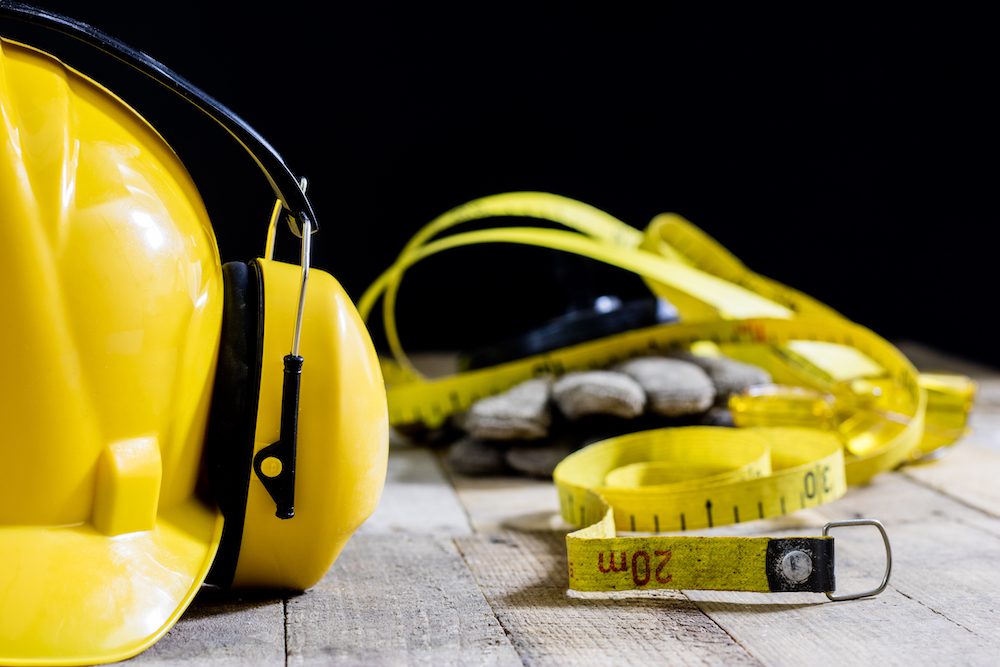Protecting Hearing Aids from Winter Moisture
Your hearing aids are more than just devices – they’re your
Walk In Cleaning Clinic: Come in on Mondays, Wednesdays, Thursdays, or Fridays anytime between 1 – 2pm for our walk in cleaning clinic!

Unless you go off and live far away from civilization, there is no way to avoid noise completely. We are all subject to loud noises from time to time, whether it’s from our lawnmower, the equipment we use at work, or the gigs we attend to see our favorite musical artists perform. Noise is just a simple fact of life; however, it is also a fact that overexposure to loud noises can cause hearing loss.
Approximately 30-million people in the US have some hearing loss, and if you don’t want to be one of them or you want to stop your hearing loss from deteriorating further, protecting your hearing is something that you should seriously think about doing.
If you are ever exposed to noises over 85 decibels, even if only in short bursts or at very irregular intervals, wearing ear protection can help to lower your risk of future hearing loss, so ideally, yes you do need to take ear protection seriously.
With that in mind let us now answer some of the most frequently asked questions about ear protection.
A good hearing instrument specialist will have a number of options for you, but they basically fall into two categories:
Earplugs are particularly useful if you buy them custom-fit to your ears because that way they will form a tight protective seal and keep more of the problematic noises in your life out so that you are less likely to suffer from hearing loss. However, you can also get cheap disposable ones, which are fine for moderately noisy situations, although they probably won’t keep all of the noise out.
Earmuffs, unlike earplugs, are worn over the ear. they can decrease or block sound significantly and are great when you’re using lawnmowers, power tools, and other machine-based equipment. Often more comfortable than earplugs, they are perfect for use by pretty much anyone.
No, your hearing instrument specialist will simply make a mold of your inner ear by filling it with a special kind of wax. The wax will typically only be in your ear for a minute or two, and although it might not be the most comfortable thing ever, it should not hurt, and it will be worth it when you have a set of ear protection plugs that fit like a glove, and really help to keep sounds out.
That depends on the product. Disposable earplugs, for example, cannot be used for more than a day or two before they need to be discarded, whereas custom made earplugs can last for as long as five years if you take good care of them by regularly cleaning them with soap and water, and maybe occasionally some hydrogen peroxide.
Earmuffs, on the other hand, can potentially last decades if you wipe them down regularly and take good care to carefully store them away when not being used. They don’t actually go in the ear, so they get less dirty, and they tend to be made from durable metal and plastic, which is why they are able to last so long.
If you are worried about being exposed to loud noises, it is fair to say that good ear protection can help to protect your ears, which is why it might be a good idea to talk to a local hearing instrument specialist who can recommend the best products and ensure that your ears are in the best possible health.
Yes, even if you are only going to be subject to loud noises for a minute or two, it would be to your advantage to wear ear protection. You see, every little bit of loud noise can do a little bit of damage, which can build up over the years leading to eventual haring loss, so although it may seem silly or a nuisance to whip out the ear protection for a quick task, pretty much every hearing instrument specialist would suggest that you do that if you are serious about minimizing your risk of hearing loss in any way you can.
Better Hearing of Madison County are experienced hearing instrument specialists. If you are thinking about ear protection, or you have any other questions about your hearing health, call us on (315) 693-3637. We’re here to help!

Your hearing aids are more than just devices – they’re your

Understanding the world of hearing can seem complex. However, having a

If you’re an active person who wears hearing aids, you might be